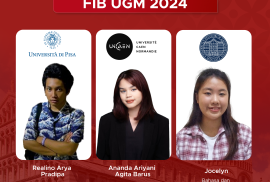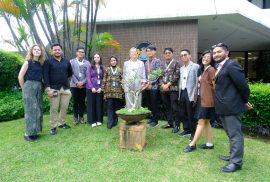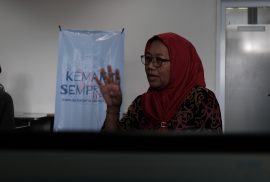Monday, April 29, 2024, Faculty of Cultural Sciences UGM received a visit from Tgk Chiek Oemar Diyan Modern Islamic Boarding School from Aceh Besar Regency, Nanggroe Aceh Darussalam Province. This visit is part of a study tour organized by the boarding school for students accompanied by supervisors and representatives of the Modern Islamic Boarding School Tgk Chiek Oemar Diyan to introduce the students to the campus environment of Universitas Gadjah Mada, especially studies at the Faculty of Cultural Sciences UGM. Not only as an introduction, but also as a motivation to pursue higher education, considering that one of the students named Ahmad Faiz Musyarraf successfully passed the Physics Engineering study program through the results of the National Selection Based on Test (SNBT) Year 2023.
On this special occasion, one of the lecturers and Professor of the Anthropology Study Program, Prof. Dr. Irwan Abdul, also shared the story of his journey to study at the UGM Cultural Anthropology study program in his time. The professor, who was born in North Aceh, gave a message to the students to cultivate persistence and never give up, which was also the spirit of Prof. Dr. Irwan Abdul during his efforts to get an education at Gadjah Mada University and during his migration in Yogyakarta during his undergraduate studies at UGM. Through his message, he also mentioned the wide open opportunities in the future open to anyone who is brave and steadfast in the learning process.





